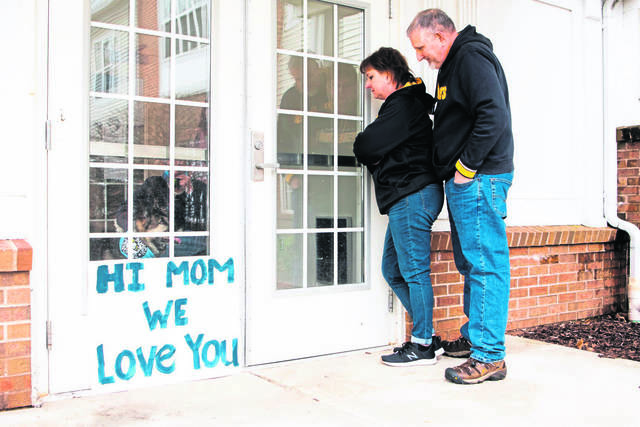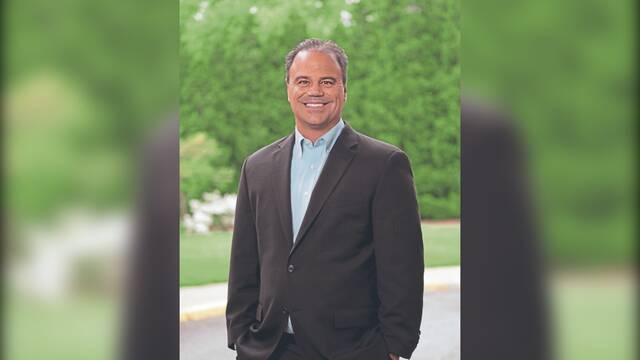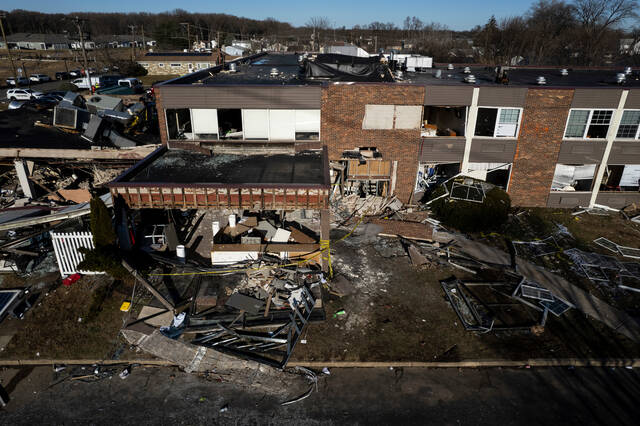A shortage of federal funding has caused Pennsylvania to scale back a critical program for assisting long-term care facilities battling covid-19, officials said Wednesday.
State officials introduced a new program called Regional Congregate Care Assistance Teams, or RCATs, to support long-term care facilities. It replaces the state’s Regional Response Health Collaborative program, a partnership between several state agencies and 11 health systems that expired at the end of 2020.
The latter program – lauded by officials and many nursing home operators for effectively reducing the severity of covid-19 outbreaks in long-term care facilities – expired Dec. 30 because of funding constraints.
The new program, RCAT, is operating with less money and performing only “the most essential” functions that the RRHCs did, officials said.
“A more limited program was not our preferred outcome,” Human Services Secretary Teresa Miller said Wednesday.
“We’ve spoken openly many times about our need for continued federal support to maintain the comprehensive supports of the (RRHC program),” Miller said. “Due to the lack of funds for state and local governments and the most recent federal funding bill, there are just not funds to do so.”
The RRHC program was introduced more than six months ago and reduced the mean number of cases linked to long-term care outbreaks by 60%, and hospitalizations by 79%, Miller said.
The mean number of deaths associated with each outbreak also decreased by 77% after the program was implemented, she said.
“This approach helped save lives,” Miller said. “A lot of things are out of our control now.”
The new RCAT system will focus on the use of a centralized long-term care task force, made up of officials from the Health and Human Services departments and the Pennsylvania Emergency Management Agency. Ten of the 11 health care systems that participated in the original program will still be a part of RCAT, providing on-site assessments, rapid response and managing 24/7 call centers for long-term care facilities to reach.
The Pennsylvania National Guard also has been reauthorized with a continued force of 240 service members to assist long-term care facilities with rapid response.
Under the new system, long-term care facilities experiencing covid-19 outbreaks can complete an online form to request help with staffing, personal protective equipment and other resources. The task force will evaluate and fulfill requests from there.
Keara Klinepeter, special adviser at the Department of Health, said the new RCAT program falls short when it comes to the duration and volume of support provided. Budget constraints force it to focus mostly on a facility’s immediate needs, but it cannot invest the time or money toward preparations and education that could help in the long-term.
Klinepeter said facilities need crisis staffing for up to two weeks, as regular employees experience burnout or themselves come in contact with the virus. RCAT will provide crisis staff, via agency partners, for only three to five days, she said.
“I don’t know that in all instances, three to five days will be sufficient,” Klinepeter said. “We are certainly willing to consider extreme circumstances, but unfortunately due to the budget limitations that we have, three to five days is what we can offer at this time.”
Many facilities in Western Pennsylvania scramble daily to maintain adequate staff levels. A Tribune-Review investigation and analysis of data from the Center for Medicare & Medicaid Services found nursing home facilities are increasingly reliant on outside help.
Klinepeter said the RRHCs also helped with contact tracing, a task that will now be handled by counties and the state. Some facility assessments will now be done virtually, as well, instead of having representatives from local health systems visit in-person.
“We’re trying to achieve efficiencies everywhere we can and use every dollar that we have as wisely as possible,” Klinepeter said.
The RCAT program will receive $6 million a month in state and federal funding through Feb. 28, said PEMA Director Randy Padfield. By comparison, the RRHC program received $175 million in CARES Act for funding that supported the RRHC program over six months.
Additionally, under the new program, an additional $28.5 million will support the state’s contract with Curative, a testing partner, for six months.
Officials said they plan to lobby Congress and the incoming Biden administration through the end of February to secure additional funding to continue or expand the new program.
“We really needed the federal government to step up and provide additional funding for this program,” Miller said. “We just simply don’t have the funds at the state level to fund a program the size of the RRHC program.”








